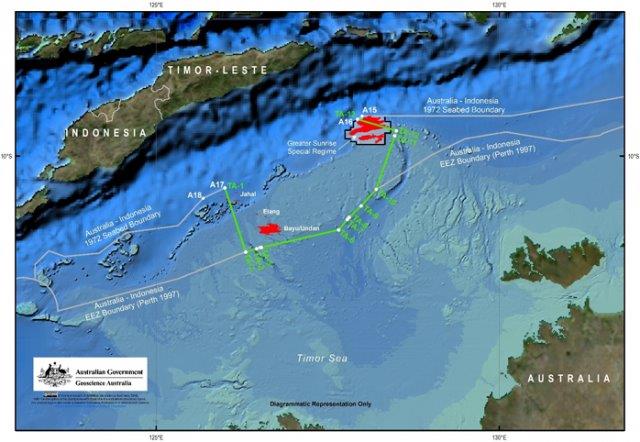More than 50 legal practitioners and University of Queensland law students gathered at the Supreme Court of Queensland on Tuesday 1 May to discuss the historic maritime treaty between Australia and Timor-Leste.
 The Seminar, hosted by UQ TC Beirne School of Law’s Marine and Shipping Law Unit, covered details of the new agreement (signed on 6 March 2018) and the remaining issues to be negotiated between Australia and Timor-Leste, including the development of the Greater Sunrise field.
The Seminar, hosted by UQ TC Beirne School of Law’s Marine and Shipping Law Unit, covered details of the new agreement (signed on 6 March 2018) and the remaining issues to be negotiated between Australia and Timor-Leste, including the development of the Greater Sunrise field.
Providing the Timor-Leste and Australian government perspectives were guest speakers Ms Gitanjali Bajaj, UQ law graduate and Partner at DLA Piper Australia, and Mr Ben Huntley, Senior Legal Officer at the Commonwealth Attorney General’s Department.
Chair and TC Beirne School of Law Adjunct Professor Dr Michael White OAM QC said the topic was one of the most complex, long-lasting issues of international and maritime law in the region.
“Along with issues in the South China Sea, this dispute over the maritime boundaries and the lucrative Greater Sunrise field in the Timor Sea – resulting in the agreement in March – is a major step for both nations,” he said.
"The TC Beirne School of Law was pleased to bring together these two major speakers to discuss this important issue.”
Mr Huntley gave an overview of the treaty negotiated under the auspices of the conciliation commission established under the United Nations Convention on the Law of the Sea 1982 (UNCLOS).
“This was first process of its kind and its success is testament to the willingness of both Parties to engage constructively and cooperatively, and to the role played by the Conciliation Commission,” he said.
“The Treaty itself represents a final, comprehensive negotiated settlement of Australia and Timor-Leste’s maritime boundaries in the Timor Sea, and is a fair, balanced and equitable outcome.”
Ms Bajaj, whose team represented the Timor-Leste Government, said that the primary objective of the conciliation was to delimit the maritime boundaries between Timor-Leste and Australia and this objective was successfully achieved after a decade of stalled bilateral talks between the two countries.
She explained that while the treaty also provides a framework for the development of Greater Sunrise, it does not set out a specific development concept, with respect to which engagement continues between the relevant stakeholders.
“The Timor-Leste Australia Conciliation serves as an important example for States around the world on the peaceful resolution of long-standing disputes,” she said.
The process has demonstrated that, with political will on both sides, even a non-binding process such as Compulsory Conciliation can bring States to an amicable solution.”
About the treaty
On 6 March 2018, the Australian and Timor-Leste governments signed an historic treaty that establishes a permanent maritime boundary in the Timor Sea and a framework for developing the vast oil and gas reserves that lie between the two States. The agreement was the result of the first-ever Compulsory Conciliation proceedings under the United Nations Convention on the Law of the Sea and was a landmark moment for the two States and the resolution of complex disputes under international law more generally.
Find out more about the TC Beirne School of Law’s Marine and Shipping Law Unit.
Media: Caroline Enright, TC Beirne School of Law Communications, media@law.uq.edu.au or +61 3365 2596
About MASLU events
The Marine & Shipping Law Unit (MASLU) is a community of scholars within the TC Beirne School of Law at The University of Queensland. We aim to achieve international recognition for scholarship, research and consultative skills in maritime law, international law of the sea, and related areas.
